Aetna Approves Coverage for Cleerly's AI Cardiovascular Imaging Analysis
Major Insurer Joins UnitedHealthcare, Cigna, and Humana in Covering Cleerly's AI-QCT Technology as Industry Momentum Builds with 86+ Million Lives...
2 min read
 Cleerly
:
October 14, 2024
Cleerly
:
October 14, 2024
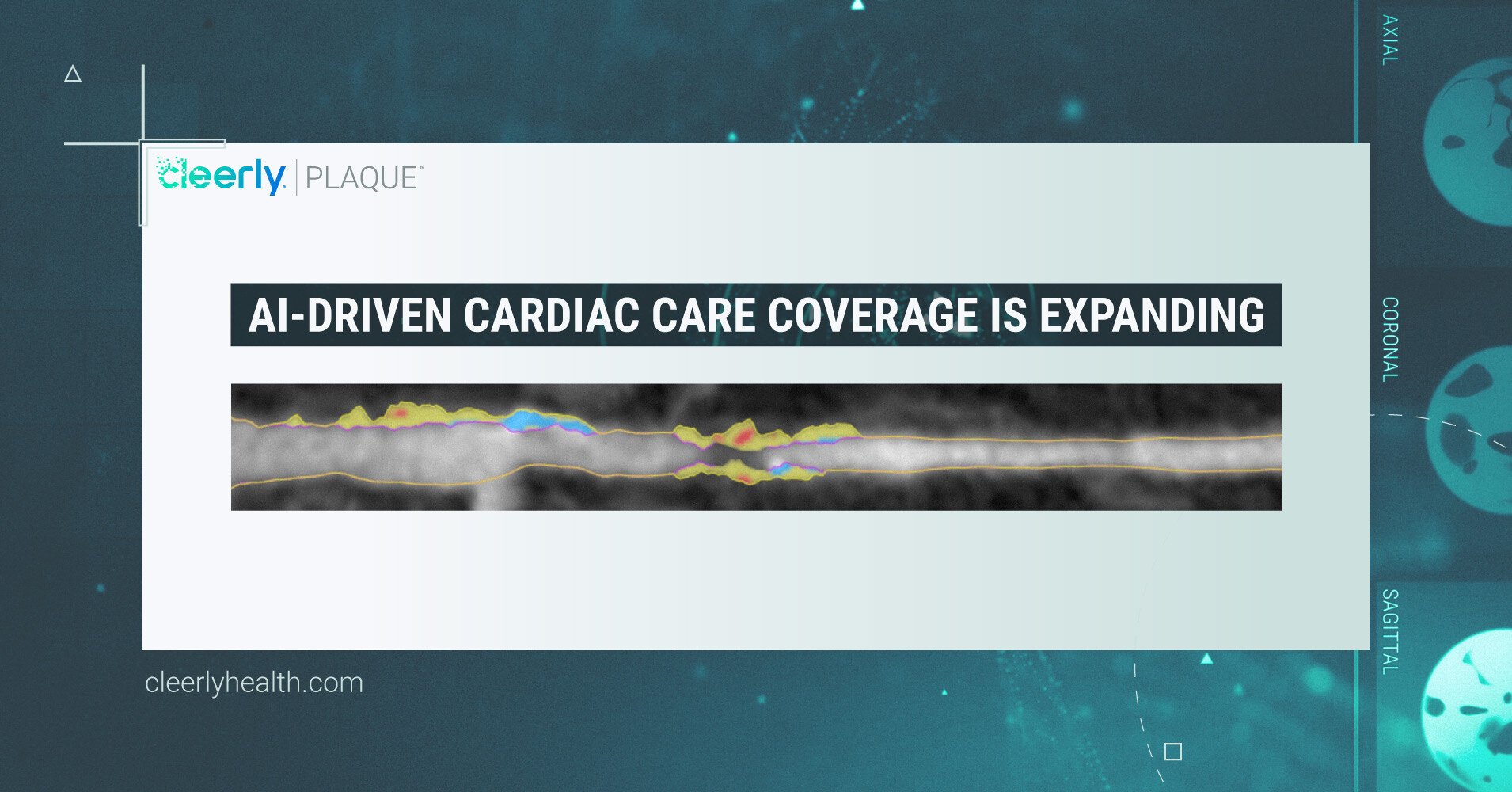
The Cleerly-initiated Medicare coverage will begin covering AI-QCT on November 24, 2024
DENVER – October 14, 2024 -- Several Medicare Administrative Contractors (MACs) have officially approved Artificial Intelligence-enabled Quantitative Coronary Tomography (AI-QCT) scans for Medicare recipients with stable and acute symptoms suspicious of coronary artery disease. Cleerly, the company on a mission to eradicate heart attacks, requested the decision on MAC coverage in February of 2023 to expand coverage of potentially life-saving AI technology to Medicare recipients at risk for future heart attacks.
This coverage will go into full effect November 24, 2024 in the Palmetto GBA, CGS Administrators, National Government Services (NGS), and WPS administrative groups. In the United States, MACs provide coverage for approximately 34 million Medicare beneficiaries.
Cleerly’s AI-QCT technology, Cleerly Labs, provides a comprehensive, standardized and reproducible assessment of coronary artery disease based on a noninvasive Cardiac Computed Tomography Angiography (CCTA). AI-based Cleerly Labs, in several studies comparing it with invasive gold standards, has been demonstrated to be highly accurate in the assessment of the presence, extent, and composition of coronary atherosclerotic plaque and similar to consensus readings of Level 3 Expert Physician Readers. The new Medicare coverage will include Cleerly Labs Plaque Analysis for patients with acute or stable chest pain with no known CAD, and CAD-RADS 1-3.
“We applaud this decision by the MACs to extend coverage for AI-QCT. When we first requested a coverage decision for Cleerly Labs, our goal was to ensure at-risk patients had coverage for the most advanced cardiovascular testing technology that can most effectively guide clinical decision making,” said James K. Min, MD, Founder and CEO of Cleerly. “We are also extremely thankful to the many physicians and medical society partners who used their voices to advocate for this essential AI-QCT technology. Until Cleerly, healthcare providers have not had a way to easily and completely assess the primary cause of heart attacks, atherosclerotic plaque burden and type, in a noninvasive way, which is especially important for our senior population. This decision by the MACs represents a significant step in advancing the field of cardiology, and providing the best possible care for our seniors.”
To request a Cleerly scan, please see Cleerly heart scan locations here or reach out to us here
Cleerly is the company on a mission to eliminate heart attacks by creating a new standard of care for heart disease. Through its FDA-cleared solutions driven by artificial intelligence, Cleerly supports comprehensive phenotyping of coronary artery disease, as determined from advanced non-invasive CT imaging. Cleerly’s approach is grounded in science, based on millions of images from over 40,000 patients. Led by a world-class clinical and technical team, Cleerly enhances health literacy for each and every stakeholder in the coronary care pathway. For more information, please visit: www.cleerlyhealth.com.
Christy Sievert
press@cleerlyhealth.com
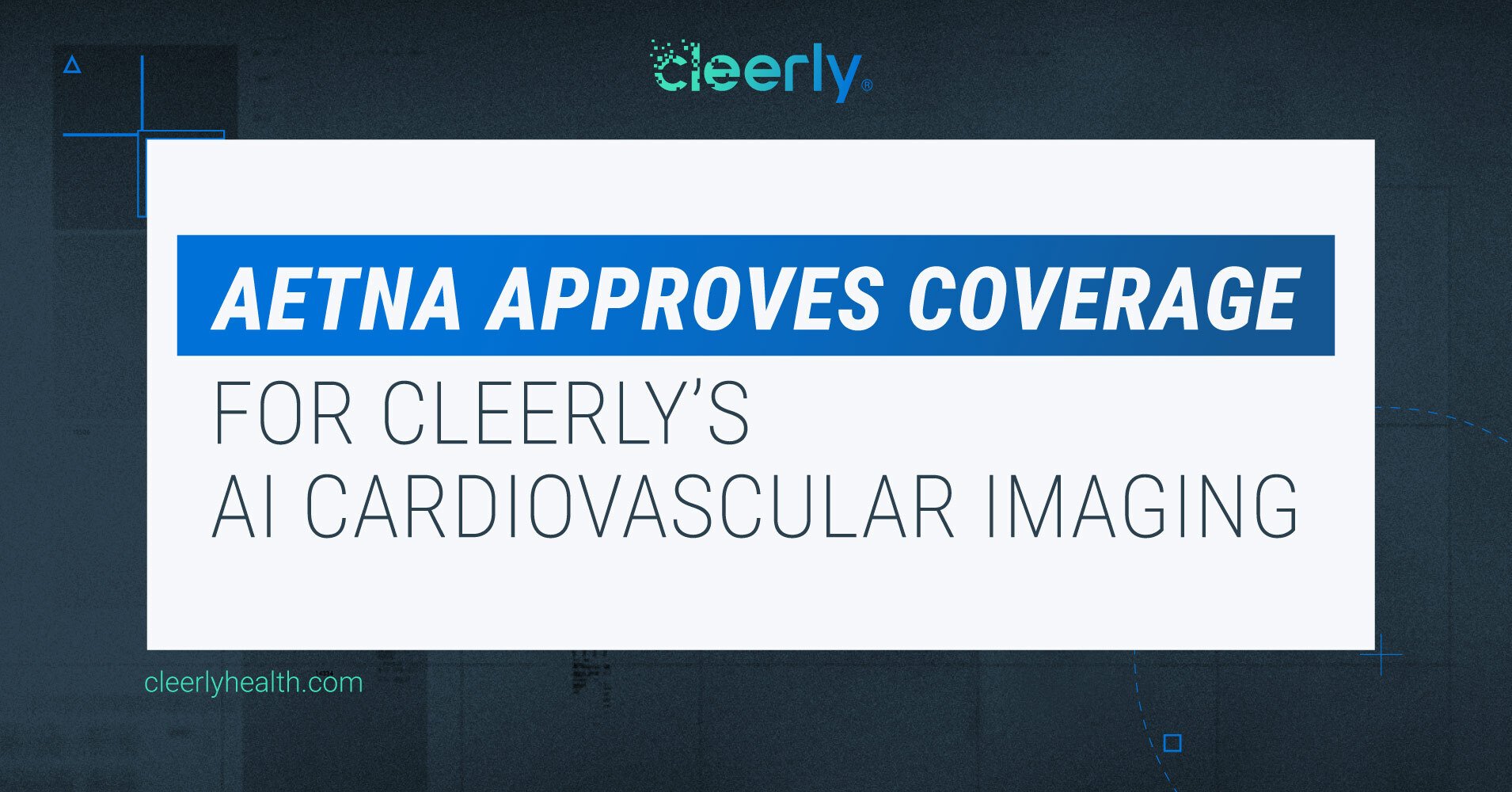
Major Insurer Joins UnitedHealthcare, Cigna, and Humana in Covering Cleerly's AI-QCT Technology as Industry Momentum Builds with 86+ Million Lives...
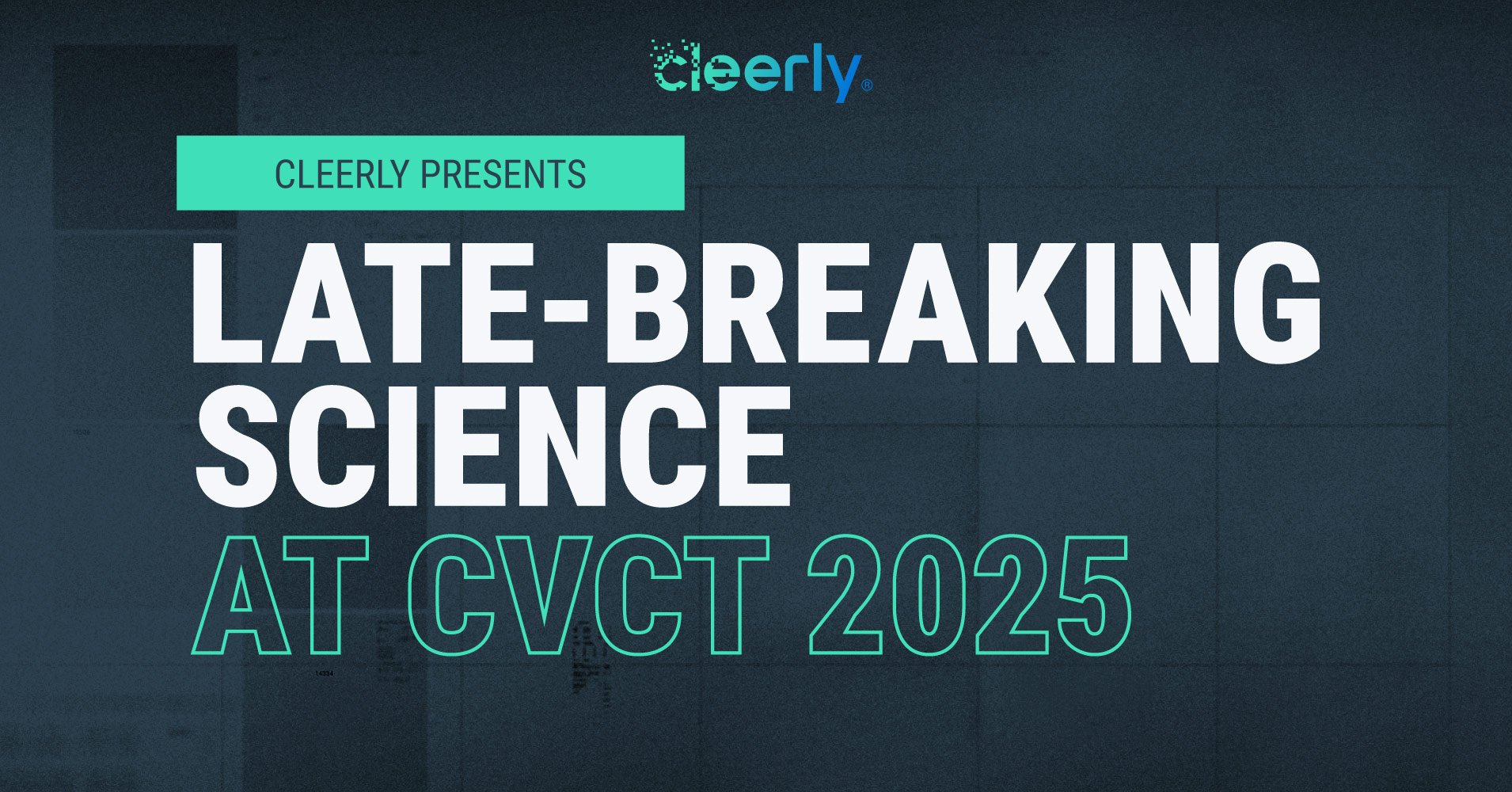
Sixth late-breaking presentation from CONFIRM2 Registry demonstrates 12-fold risk gradient based on total plaque burden
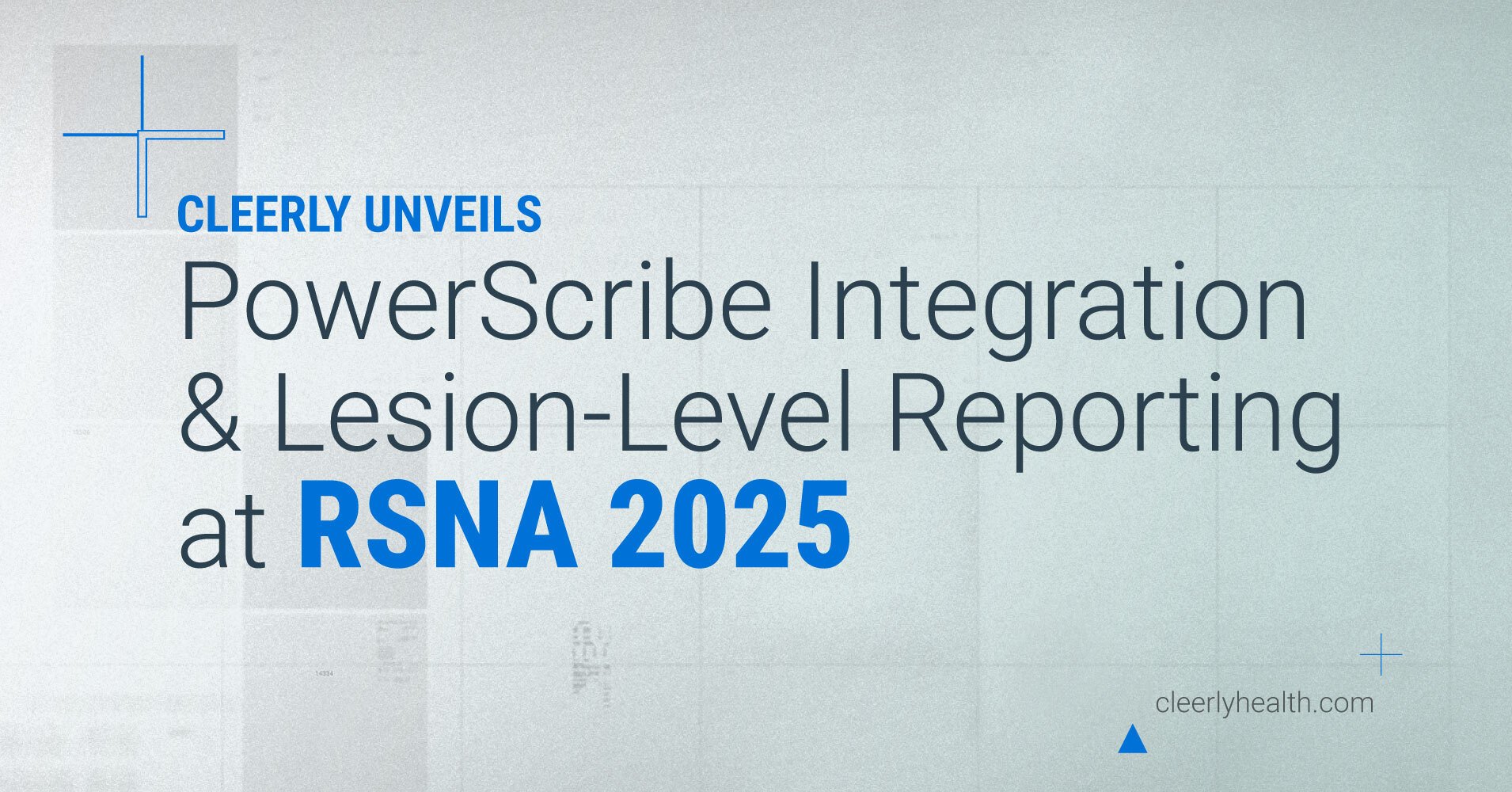
New additions streamline data transfer with lesion details, helping make information more accessible for care teams
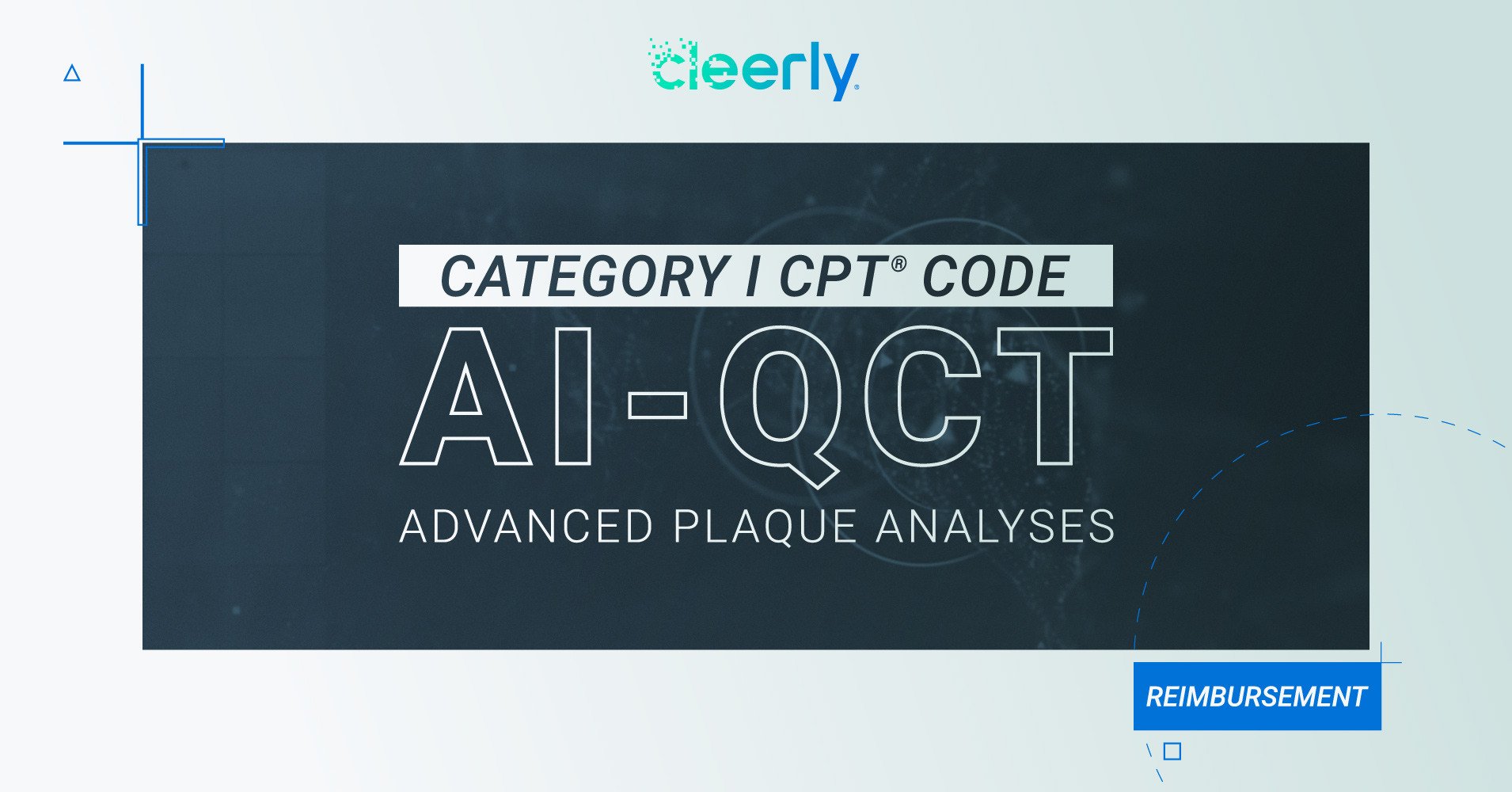
After Five Years of Collaboration, Cleerly’s Innovative Technology Gains Permanent Recognition

Strategic promotions strengthen Cleerly's executive team as company accelerates growth
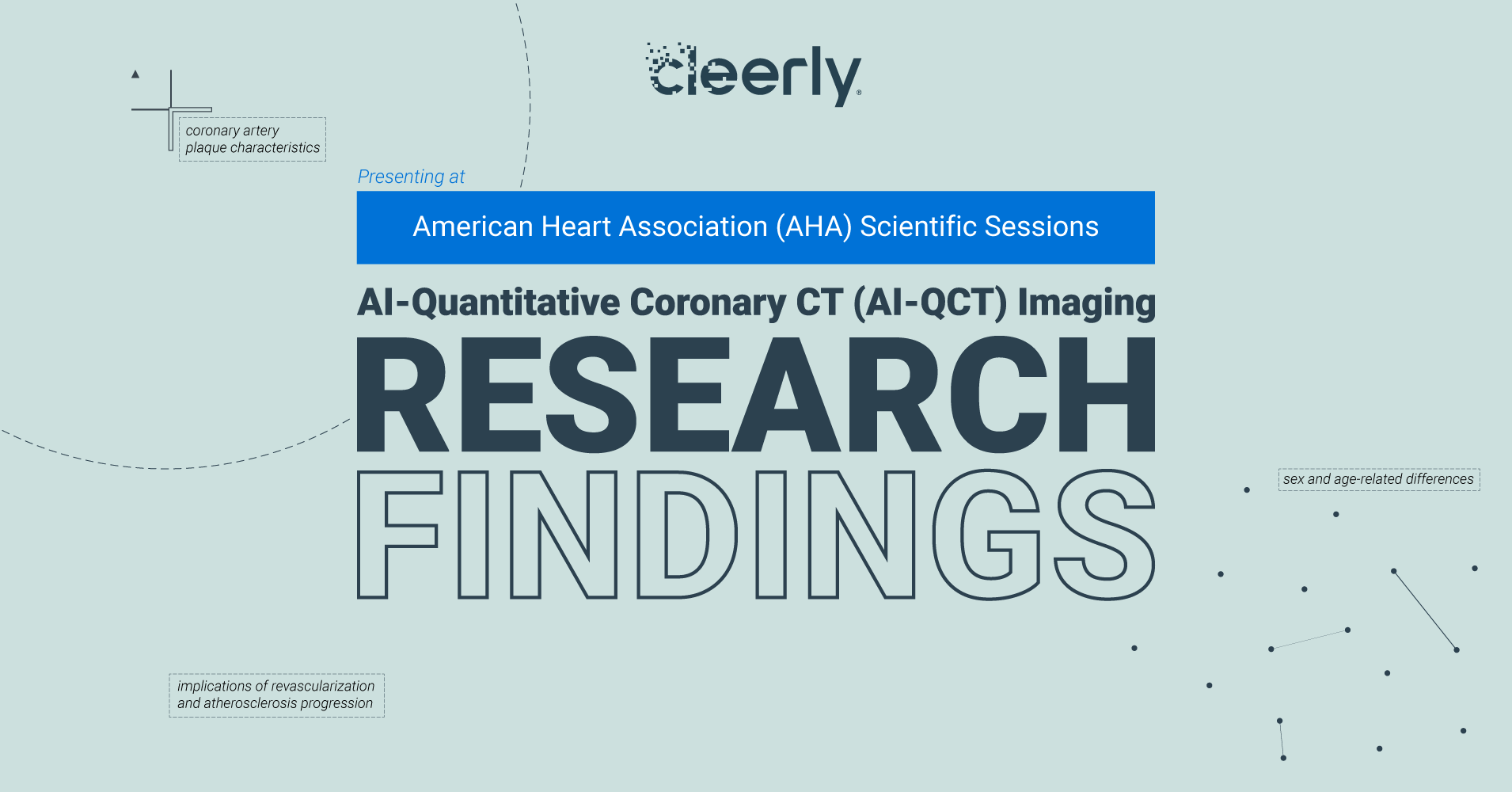
New Insights from AI-Quantitative Coronary CT (AI-QCT) Data to be Shared in Chicago, November 16-18, 2024